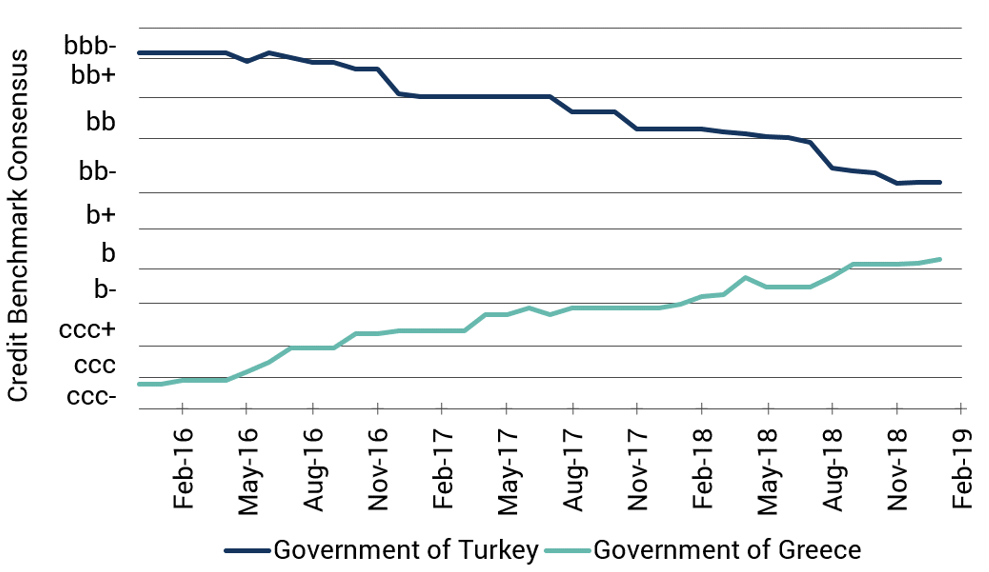
Sovereign credit risk is important: not only do changes in government borrowing rates affect public funding, these same rates impact investment portfolios broadly. Sovereign risks serve as fundamental inputs to the analysis of most entities, especially corporate and financials. Sovereign credit risk is typically driven by country-specific factors, like the current situation in Venezuela, although sometimes it may affect an entire region, as in the 2011 Eurozone funding crisis.
Recently changes in globalization and trade arrangements are having a profound effect on Sovereign risks. Economic alliances, trade flows, and supply chains are changing or breaking down, and new patterns are emerging, with winners and losers. As data from Credit Benchmark shows, the overall environment for Sovereign credit is increasingly dynamic and volatile.
OPEC: Cumulative Deterioration 30% in the Past 2 Years
The Organization of the Petroleum Exporting Countries (OPEC) has had a challenging few years. The US is now energy self-sufficient and oil demand is dropping. It has been difficult for OPEC to maintain production cuts, and Qatar recently left the group. Venezuela, despite huge reserves, is in a state of near-total economic collapse. Saudi Arabia has shelved plans to float Saudi Aramco.
Latin America: Showing Erratic Improvement
Latin America has had mixed fortunes recently. Brazil is in the early stages of major political change while the economic collapse in Venezuela is creating tensions and refugee problems in Colombia and Central America. While Argentina is making a disciplined recovery from default, upcoming elections will be critical. Overall, the continent is likely to see a significant increase in Chinese investment, and Chile, with the world’s largest copper output, is an early beneficiary.
Turkey and Greece: Converging
According Credit Benchmark data, Greek sovereign risk has recovered steadily from ccc- in 2016 to its current level of b. Greece is recovering from the near-collapse of its economy and in March 2019 it successfully returned to the global bond market. But steady progress on the Sovereign rating needs to be balanced by the legacy of a public and private debt overhang.

The recovery in Greek sovereign risk is a direct contrast to the Turkish trend which has seen a move from bbb- (i.e. investment grade) to bb-. Turkey’s government survived the 2016 coup attempt but has faced intermittent US sanctions and trade restrictions. Turkey’s geopolitical position has also brought it into periodic conflict with Russia, but the two countries have recently found common cause. Turkey’s allegiances are shifting and the implications could be far-reaching.
For more sovereign credit risk trends including Developed Economies vs. Emerging and Frontier Economies, Brazil, Mexico, China, and more, continue below to read the full whitepaper.
Please provide your details to download the whitepaper: